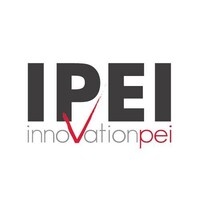
Open
eForcePEI
Last Update: October 27, 2025
PE, Canada
Online training for PEI employers
Other Support
Expert Advice
At a glance
Funding available
Financing goals
Obtain certifications
Develop employee skills
Eligible Funding
- No Condition
Timeline
- Open Date : July 9, 2024
Eligible candidates
Eligible Industries
- All industries
Location
- Prince Edward Island
Legal structures
- All legal structures
Annual revenue
- All revenue ranges
Organisation size
- All organization sizes
Audience
- All groups
Overview
Gain access to a library of online training courses to help develop your employees, enhance their skills, and improve your business overall.
Activities funded
Examples of admissible projects:
$ 8,700
Upgrade technical skills of IT team through Udacity's advanced online programming courses
$ 8,500
Provide customer service training for employees using specialized online courses from Service Excellence Canada
$ 5,800
Train non-profit volunteers in fundraising techniques using online courses provided by the Fundraising Institute of Canada
$ 7,000
Enhance marketing skills through Coursera's specialized digital marketing courses for the marketing team
$ 11,000
Develop leadership skills via Harvard Business School's online leadership courses for cooperative managers
$ 7,500
Implement a health and safety training program using online resources from the Canadian Centre for Occupational Health and Safety
Eligibility
- Must be a resident of Prince Edward Island
- Open to business owners, managers, employees, and job seekers
Who is eligible?
There are several eligible types of companies for the eForce PEI grant:
- Small and medium-sized enterprises (SMEs)
- Non-profit organizations
- Islanders seeking skill development
Who is not eligible
There are certain types of companies that are not eligible for the grant:
- Companies outside Prince Edward Island
- Large corporations with over 500 employees
Eligible expenses
Eligible expenses for this grant include:
- Training fees
- Course materials
- Online course subscriptions
- Certification exam costs
Selection criteria
There are evaluation and selection criteria for this grant. The criteria focus on the applicant's ability to demonstrate the relevance of the proposed training to skill development and employability.
- Demonstrated relevance of proposed training to skill development.
- Ability to showcase how the training contributes to improved employability.
- Alignment of the training with the individual's or organization's learning and development objectives.
- Evidence of a commitment to completing the training program.
- Potential impact of the training on the individual's career progression or the organization's growth.
How to apply
1
Select a program that meets your needs.
- Create an account by providing your name, email, and password.
- Agree to the Terms of Use.
2
Activate your account by clicking on the confirmation link sent by email.
3
Choose the course(s) of your interest from the library.
Enroll in the selected course(s) to confirm your interest.
4
Start the training by accessing the content.
Complete the training to receive the certificates of achievement.
Additional information
Here is one additional relevant detail for this grant:
- Participants can access various video resources for guidance on using SkillsPass and managing their Worker Passport.
Contacts
eforcepei@skillspass.com
902-566-4716
PE, Canada
Apply to this program
Frequently Asked Questions about the eForcePEI Program
Here are answers to the most common questions about the eForcePEI. This section explains what the program is, how much funding is available, eligibility requirements, application deadlines, and other important details to help you determine if this grant is right for your business.
What is the eForcePEI?
Who can I contact for more information about the eForcePEI?
Where is the eForcePEI available?
Is the eForcePEI a grant, loan, or tax credit?
Who are the financial supporters of the eForcePEI?
Apply to this program
More programs like this

Tax CreditsOpen
Enriched Investment Tax Credit
Government of Prince Edward IslandRebates for manufacturing and processing exporters in PEI

Grant and FundingOpen
Strategic Improvement Assistance
Government of Prince Edward IslandFinancial support to improve PEI businesses

Grant and FundingOpen
Livestock Strategy Program — Strategic Livestock Industry
Government of Prince Edward IslandFunding to increase profitability of PEI livestock industry

Grant and FundingOpen
Atlantic Innovation Fund — Private Sector Businesses
Atlantic Canada Opportunities Agency (ACOA)Financial backing for technology R&D in Atlantic Canada

Grant and FundingOpen
Agriculture Research and Innovation — Applied Research (Agribusiness and Academic Institutions)
Government of Prince Edward IslandFunding for short-term applied research in Prince Edward Island agriculture

Expert AdviceOpen
Innovation Canada — Innovation Advisors in PEI
Innovation CanadaPersonalized advisory services for innovators in Prince Edward Island

Grant and FundingOpen
Potato Stabilization and Innovation initiative (PSII)
Atlantic Canada Opportunities Agency (ACOA)Supports modernization and diversification of Prince Edward Island’s potato sector

Grant and FundingClosed
Innovation Fund
Government of Prince Edward IslandFinancing for PEI businesses to bring new products to market

Grant and FundingOpen
Equity Investors Incentive
Government of Prince Edward IslandFunds for PEI businesses to attract investors

Grant and FundingOpen
Innovation and Development Labour Rebate Program
Government of Prince Edward IslandTax credit for development and commercialization in Prince Edward Island (PEI)
Sign up to our platform to access the eForcePEI information sheet for free
Get access to 4,000+ programs, practical guides, personalized alerts, and an AI assistant to support your grant applications.